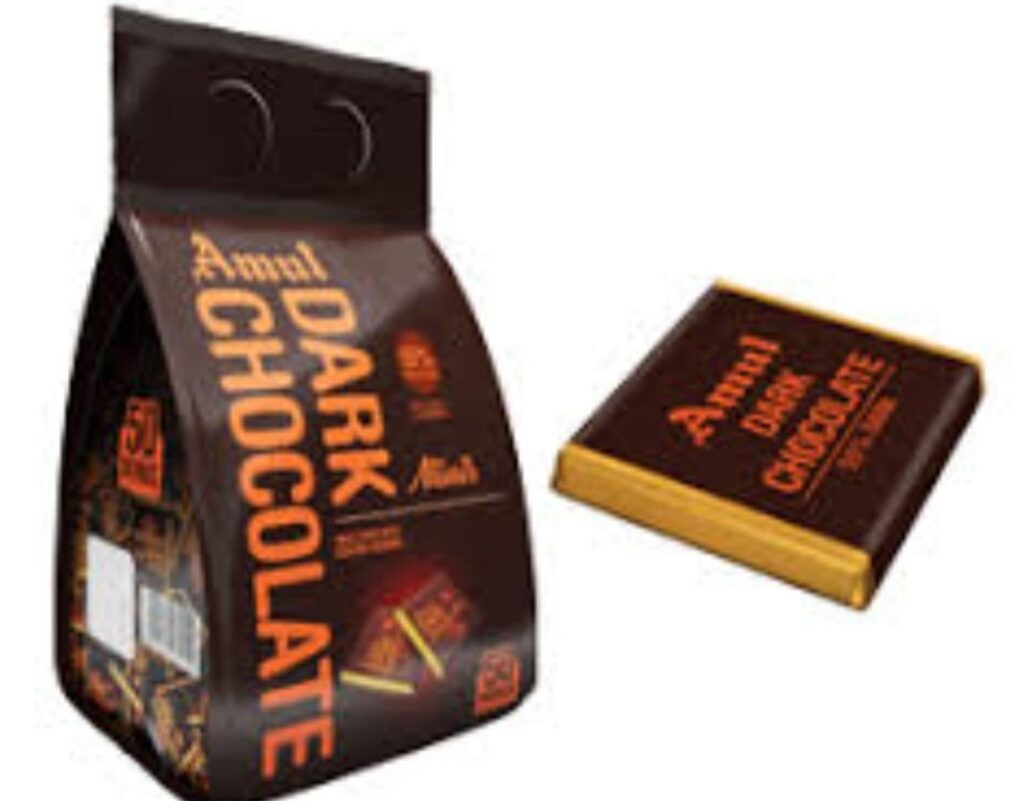Amul, an esteemed dairy cooperative, holds a significant position in India’s food industry. Established in 1946, the Gujarat Cooperative Milk Marketing Federation (GCMMF), widely recognized as Amul, stands as a shining example of successful cooperative entrepreneurship. Visionary leaders like Verghese Kurien played a pivotal role in its foundation, transforming the lives of countless dairy farmers nationwide.
Synonymous with top-notch dairy products such as milk, butter, cheese, and ice cream, Amul’s cooperative model is a catalyst for empowering farmers. By ensuring a fair share of profits, it enables them to enhance their livelihoods. Amul’s unwavering commitment to quality, innovation, and social responsibility has not only cemented its status as a household name but also positioned it as a symbol of self-reliance in India’s dairy sector.
As India’s largest food product organization, Amul reported an impressive annual turnover of $7.2 billion in FY23. The daily milk procurement stands at approximately 25.9 million liters per day, sourced from 18,600 village milk cooperative societies and 18 member unions across 33 districts, involving 3.64 million milk producer members.
This success story transcends borders, serving as a global model. Amul operates through 76 sales offices and boasts a dealer network comprising 10,000 dealers and 10 lakh retailers, making it one of the largest networks in India. The product range spans milk, milk powder, health beverages, ghee, butter, cheese, pizza cheese, ice cream, paneer, chocolates, and traditional Indian sweets.
In an exclusive conversation with The Interview World, Jayen Mehta, Managing Director at Amul, sheds light on Amul’s journey — from a cooperative operation to becoming one of the leading FMCG brands in the country. Here are some excerpts from the interview.
Q: What factors contribute to the remarkable success of Amul?
A: The credit for our success lies with the cooperative model and the 36 lakh farmers who have been associated with it for the past 77 years. We are optimistic about the trajectory we’ve embarked upon. This optimism extends to the dairy industry and the broader food industry, as well as the efficiency and opportunities in both the cooperative and business spaces, given our consumer-facing approach.
The growth of the dairy industry in India owes much to the support of the cooperative model. At the time of Independence, milk production was minimal, and we relied heavily on imports of subpar quality. Amul emerged to counter the exploitation by private traders, leading India to become the world’s largest milk producer. Notably, this development has elevated milk to the status of the largest agricultural crop in India.
The output value of milk now surpasses that of wheat, paddy, and oil seeds combined. This remarkable journey over the past seven decades has not only been Amul’s but also India’s and Indian agriculture’s. It has significantly impacted the livelihoods of lakhs of families associated with the dairy industry in India.
Q: How do you compete in the chocolate segment?
A: Various global brands exist worldwide, each offering a unique identity. Amidst this diversity, Amul seeks to enhance both the appeal and palatability of its products. Engaged in the chocolate industry since 1973, Amul boasts nearly 50 years of experience. The inception into the chocolate market was prompted by the exploitation faced by cocoa bean farmers in South India, victimized by monopolistic multinational corporations.
Over the decades, Amul has evolved into a beloved chocolate brand, embodying the essence of a heartfelt gift. Today, it stands as the leading dark chocolate brand in the country, presenting a diverse array of options ranging from 55% to an impressive 99% cocoa content. The assortment includes various flavors, variants, and even single-origin chocolates, catering to a broad spectrum of preferences.
This dynamic market, particularly popular among the younger generation, has witnessed Amul successfully position itself as a formidable player. Beyond the realm of standalone chocolate consumption, Amul’s proficiency extends to integrating chocolate into ice creams and beverages. Consequently, its competence in handling chocolates has significantly contributed to establishing the brand as a robust force in the food industry.
Notably, Amul faces minimal competition in this domain. Major brands such as Cadbury and Nestle lack a substantial presence in the dark chocolate segment, underscoring the unique selling proposition (USP) that Amul has meticulously cultivated.
Q: How do you manage your distribution network for a wide range of products that require controlled temperature?
A: We primarily focus on distribution for most of our products, adhering to traditional methods. Our ambient products, including ghee and milk powders, do not necessitate refrigeration and seamlessly integrate into the standard supply chain. However, products like butter and cheese require cold storage, maintained at temperatures between zero to 4 degrees Celsius.
Additionally, frozen items such as ice cream and paneer demand a specialized frozen supply chain, operating at a chilling -20 degrees Celsius. This constitutes the third distribution avenue. Furthermore, we have a fourth avenue dedicated to fresh products directly sourced from the farm.
Our products, whether ambient, chilled, frozen, or fresh, are designed to navigate any of these four distribution channels efficiently. The term “highways” is employed to describe our supply chain, emphasizing that increased traffic on these channels results in lower transaction costs. This synergy becomes particularly evident when multiple products are concurrently introduced and distributed through our network, fortifying our supply chain as a formidable force.
Q: Are you integrating millet into your products?
A: India is actively promoting the virtues of coarse grains on the global stage, assuming a pivotal role in elucidating their benefits. The Union Government envisions India emerging as the primary hub for millets worldwide. Furthermore, it aspires to elevate the International Year of Millets 2023 into a widespread ‘people’s movement.’
In pursuit of this goal, we are not only cultivating millets but also innovating various products like millet cookies, corn substitutes, millet wafers, chocolates, and more. These creations serve as alternatives to traditional wheat-based products. By engaging in such practices, we not only contribute to the nation’s mission but also strive to bring attention to the nutritional significance of millets on a global scale.
Q: How do you envision Amul 10 years down the line?
A: Over the next decade, we anticipate a significant increase in milk production, projecting a rise to 33%. This signifies that India is poised to contribute one-third of the world’s total milk output. With such promising prospects, India has the potential to establish itself as the global leader in dairy production. This presents a tremendous opportunity for the 10 crore families linked to the dairy industry. Looking ahead, it is clear that this burgeoning sector will play a crucial role in meeting global dairy demands, positioning India as a key player on the world stage.
Q: What’s your expansion plan in Sri Lanka?
A: We are embarking on a joint venture with Amul and NDDB. Additionally, we have plans to establish another joint venture with a Sri Lankan company. Our objective is to empower Sri Lanka to achieve self-sufficiency in the next decade. This strategic move involves leveraging our proven model, along with our deep understanding and expertise in various sectors such as agriculture, farming, dairy, cooperatives, and animal husbandry. By applying our knowledge, we aim to enter the Sri Lankan market and collaborate with local farmers. Through our assistance and collaboration, we intend to foster an environment that promotes increased production, expands market opportunities, and ultimately enhances self-sufficiency for the farmers in the region.



